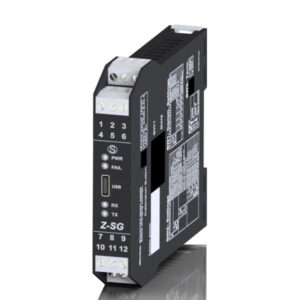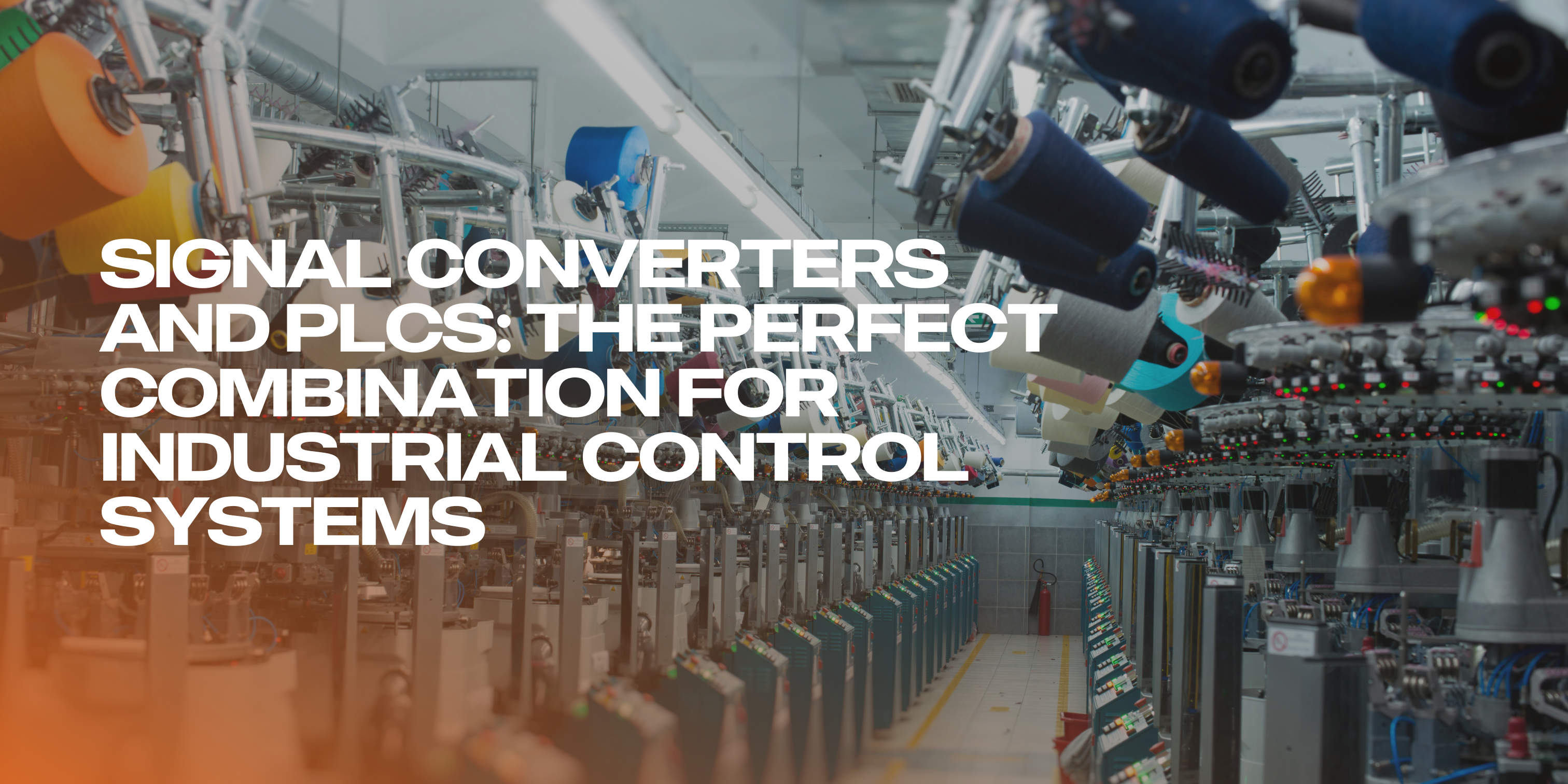In this article, we’ll explore how the correct selection and integration of signal converters enhance the efficiency of PLC-based control systems. We’ll also highlight some of the best converters available at Logicbus, including the renowned brand SENECA, specialists in industrial automation solutions.

Why is a Signal Converter Important in Systems with PLCs?
Industrial control systems generally handle a wide variety of input and output devices, such as temperature, flow, and pressure sensors, or even actuators. Each of these devices emits different types of signals, whether analog, digital, or even special signals like thermocouples or RTDs (temperature sensors). A PLC, on the other hand, requires these signals to be in a compatible format to process them correctly.
Signal converters serve several critical functions:
- Convert analog signals to digital so the PLC can read them.
- Adjust voltage or current levels, ensuring compatibility with the PLC inputs.
- Isolate signals to protect the PLC and other devices from interference and electrical spikes.
Most Common Signal Types and Converters
In industrial control systems, the most common signal types include:
- Current signals (4-20 mA, 0-20 mA)
- Voltage signals (0-10 V, -10 to 10 V)
- Temperature signals (thermocouples, RTD)
- Digital signals
Depending on the type of signal you want to convert, there are different types of converters. For example, analog-to-digital signal converters (A/D) are essential when you need to transform data from analog sensors into information that a PLC can process.
Example Products for Signal Conversion:
- SENECA Z109REG2-1: This signal converter is extremely versatile and allows for the conversion of current and voltage signals in multiple formats. Ideal for universal applications, the Z109REG2-1 offers precise conversion, galvanic isolation, and compatibility with standard signals like 0-10 V and 4-20 mA, which are common in industrial sensors.
- SENECA Z-8AI: This module is perfect for applications requiring the conversion of multiple analog inputs, making it a practical option when you need to connect several sensors to a single PLC.
Benefits of Using Signal Converters in Combination with PLCs
By integrating signal converters into PLC control systems, you gain several important benefits:
- Signal Compatibility: Converters ensure that any field signal is compatible with the PLC, eliminating compatibility issues and ensuring that the system operates correctly.
- Electrical Isolation: Many signal converters provide galvanic isolation, protecting both PLCs and other connected equipment from voltage spikes or electromagnetic interference.
- Measurement Precision: By using high-quality converters like those from SENECA, it is possible to ensure that the converted signal maintains high accuracy, essential for critical industrial applications.
- Flexibility and Scalability: Converters allow for the addition of more field devices or the expansion of PLC functionalities, making it easier to adapt industrial plants to new needs or technologies.
Easy and Efficient Integration
Integrating a signal converter into a PLC-based control system is generally straightforward. These devices are designed to be plug-and-play, meaning you can easily connect them between your field devices and the PLC, and configure them to convert input signals into a compatible format.
The SENECA product line is known for its ease of use and fast configuration. Many of their converters are software-programmable, allowing you to adjust specific signal parameters and ensure optimal conversion.
Practical Use Cases
Signal converters and PLCs are widely used across various industries, such as automotive, food processing, energy, and chemical sectors. Some examples of their application include:
- Process Control: Where pressure, temperature, or flow sensors need to be converted into signals that the PLC can read to automatically adjust valves or pumps.
- Remote Monitoring: In facility monitoring systems, converters allow field signals to be transmitted over long distances without data loss or accuracy degradation.
- Renewable Energy: In solar or wind plants, signal converters are crucial for transforming sensor and meter signals into data that PLCs use to optimize energy performance.
Conclusion
Signal converters are essential for the proper functioning of PLC-based control systems, providing compatibility, precision, and safety. Integrating converters like those from SENECA not only improves system reliability but also optimizes its performance and expands its ability to adapt to new applications. If you’re looking for reliable, high-quality products, Logicbus offers a wide range of signal converters and PLCs, along with expert advice to help you select the ideal solution for your industrial project.
sales@logicbus.com | support@logicbus.com | +1 619 616 7350 | Start conversation





